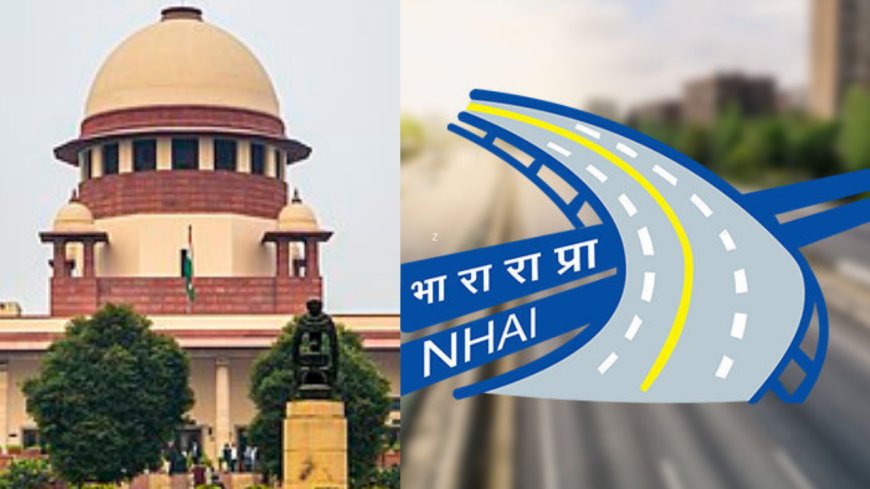Supreme Court Flags “Unfair” NHAI Land Compensation Rules
Supreme Court questions NHAI Act’s land compensation rules, says bureaucrats can’t replace judges. Calls for fair, judicial oversight in acquisitions.

The Supreme Court has raised strong concerns about how landowners are compensated when their land is acquired for national highways. The court said the current law under the National Highways Act, 1956is “unfair” because it leaves compensation decisions to bureaucrats instead of judges.
What’s the Issue?
When the government takes land for highways, the compensation amount is decided by executive officers (like collectors or commissioners). But in other cases of land acquisition, even for small plots, a district judge has to approve compensation.
The Supreme Court bench of Justice Surya Kant and Justice Joymalya Bagchi asked:
“Why should bureaucrats decide compensation for large pieces of land, while even small state acquisitions need a judge’s approval? Isn’t this discrimination?”
The judges said this creates a “valid heartburn” for landowners who feel they are not being treated fairly.
Why It Matters
-
Land acquisition = compulsory loss of property. Under Article 300A of the Constitution, no one can be deprived of property without fair compensation.
-
The current NHAI law excludes solatium and interest (extra payments for compulsory acquisition), which are guaranteed under other land laws.
-
The arbitration system under the Act is one-sided — the acquiring authority (NHAI) controls it, leaving no room for an independent judicial check.
This could also clash with last year’s Constitution Bench ruling in Central Organisation for Railway Electrification (2024), which said the government cannot unilaterally appoint arbitrators because it violates Article 14 (equality before law).
What the Punjab & Haryana High Court Said
Back in March 2025, the High Court struck down parts of the NHAI Act (Sections 3J and 3G), calling them unconstitutional. It ruled that:
-
Landowners must get solatium (30%) and interest (9% and 15%) like under the Land Acquisition Act, 1894.
-
The arbitration system under the Act was biased and against natural justice.
-
The NHAI scheme was inconsistent with the LARR Act, 2013, which ensures fair compensation.
Supreme Court’s Stand
The SC echoed these concerns and suggested that judicial officers (like district judges), not bureaucrats, should decide compensation in highway land cases.
“Adjudicatory power must lie with the judiciary,” the bench stressed.
What Happens Next?
The court hasn’t struck down the law yet. But it has asked the Union government to revisit and amend the NHAI Act, so that it’s in line with the Constitution and ensures fair, just, and equitable compensation for landowners.
This case is not just about landowners vs highways, it’s about who gets to decide what is “fair” when the government takes private property. The outcome could set a big precedent for how land acquisition works in India, balancing infrastructure development with citizens’ rights.
📌 Follow us on YouTube, Instagram, and Twitter for more updates.







